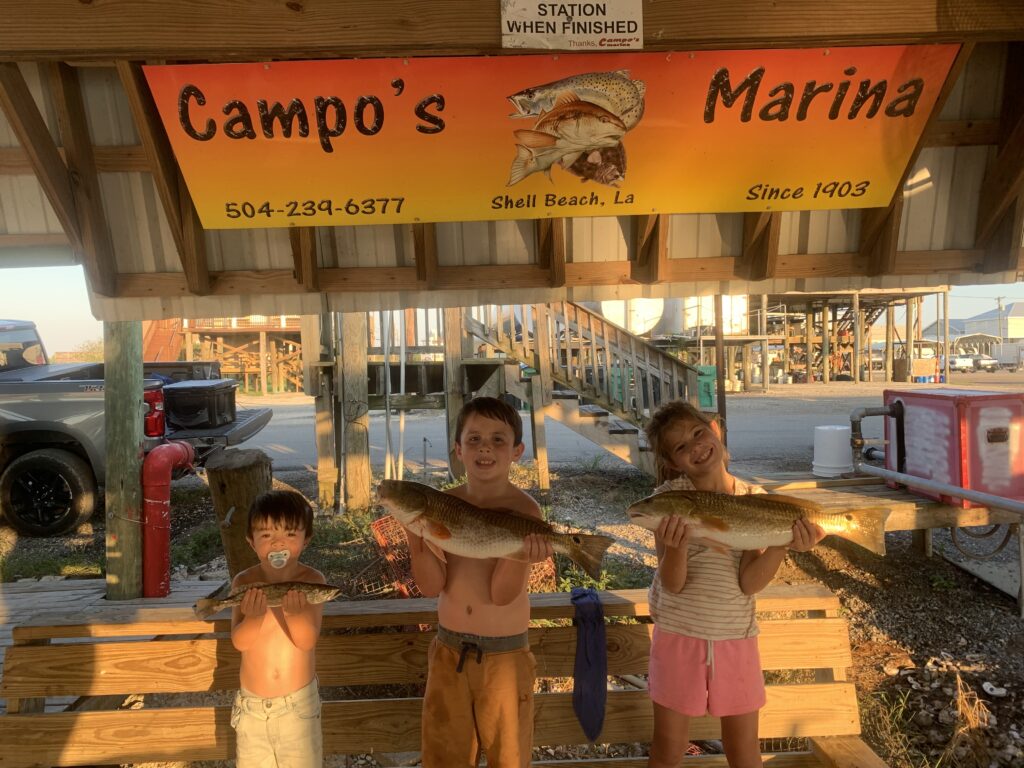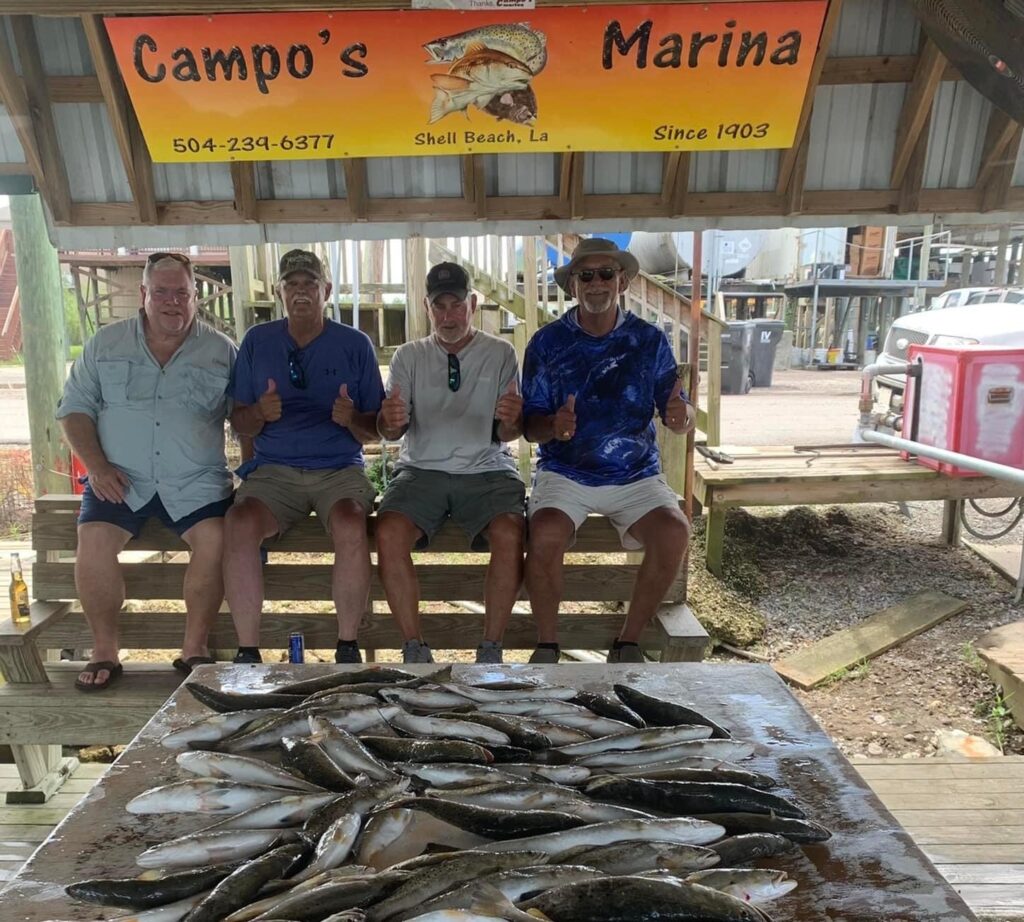How do fishing charters handle bad weather or sea conditions?
How do fishing charters handle bad weather or sea conditions? Fishing trips are exciting adventures where people can enjoy being out on the water and…
Fishing is a timeless and rewarding outdoor activity that allows you to connect with nature while challenging your angling skills. Among the various forms of fishing, freshwater fishing stands out as a popular choice due to its accessibility, diversity of fish species, and the beauty of freshwater environments. Whether you’re a beginner or an experienced angler looking to refine your skills, this ultimate guide to freshwater fishing will provide you with valuable tips and techniques to make your next fishing trip a success.
Freshwater fishing involves catching fish that inhabit non-saline water bodies such as lakes, rivers, ponds, and streams. It’s essential to understand the following fundamental aspects before you begin:
Fish Species: Familiarize yourself with the various fish species that inhabit freshwater bodies in your region. Common species include bass, trout, catfish, crappie, perch, and sunfish, among others.
Fishing Regulations: Research and adhere to local fishing regulations, including size and bag limits, seasons, and permitted fishing methods.
Gear and Equipment: Invest in quality fishing gear, including rods, reels, lines, hooks, baits, and tackle boxes. The right equipment can significantly affect your success.
Different fish species have preferred seasons for feeding and spawning. Understanding these seasons is crucial for planning your fishing trips:
Spring: Many freshwater fish, like bass and crappie, become more active in the spring as water temperatures rise.
Summer: Summer can be productive for a variety of species, but it’s essential to fish early in the morning or late in the evening when the water is cooler.
Fall: Fall is a prime time for fishing as fish feed heavily to prepare for the winter months.
Winter: While winter fishing is slower, it can still be rewarding. Fish tend to be deeper and less active in cold water.

Casting and retrieving is the most common technique used in freshwater fishing. Follow these steps for success:
Casting: Master the art of casting by practicing in an open area. Pay attention to your reel’s settings and adjust them for the weight of your bait or lure.
Retrieving: Vary your retrieval speed and depth to mimic the movements of prey. Experiment with different lures and techniques, such as slow-rolling or twitching, to entice strikes.
Bait fishing involves using live or artificial bait to attract fish. Here are some bait fishing tips:
Live Bait: If using live bait, keep it lively by using appropriate containers or aerators. Common live baits include worms, minnows, and insects.
Artificial Bait: Artificial baits like soft plastics, crank baits, and spinners come in various shapes, sizes, and colors. Experiment to find what works best for your target species.
Fly fishing is a specialized technique that involves casting a weighted fly line with an artificial fly. Here’s what you need to know:
Fly Selection: Match your fly selection to the insects and prey available in the area. Pay attention to hatch patterns and mimic them.
Casting: Learn the basics of fly casting, including the overhead cast, roll cast, and false cast. Practice in open spaces before heading to the water.
Regardless of the technique you choose, effective freshwater fishing relies on smart strategies:
Location: Research and scout for promising fishing spots. Consult local anglers, fishing forums, and maps to pinpoint productive areas.
Time of Day: Fish are often more active during dawn and dusk. Plan your trips accordingly for better success.
Weather: Pay attention to weather conditions, as they can impact fish behavior. Overcast days or light rain can sometimes lead to increased activity.
Patience: Fishing requires patience. Be prepared to wait for the right opportunity and avoid rushing.
Responsible angling involves catch and release practices, ensuring the sustainability of fish populations. Follow these guidelines:
Handle with Care: Minimize stress and injury to the fish by handling them gently. Wet your hands before touching them, and use barbless hooks if possible.
Quick Release: Remove the hook as quickly as possible and release the fish back into the water. Avoid exposing them to air for too long.
Use Proper Gear: Equip your fishing tackle with the appropriate gear for safe catch and release, such as dehooking tools and fish-friendly nets.
Prioritize safety during your fishing trips:
Life Jackets: Always wear a properly fitted life jacket, especially if fishing from a boat or in challenging conditions.
Sun Protection: Protect yourself from the sun’s harmful rays by wearing sunscreen, sunglasses, and a wide-brimmed hat.
Bug Protection: Use insect repellent to ward off pesky bugs, especially near water.
First Aid Kit: Carry a basic first aid kit to address minor injuries and ailments.
As a responsible angler, it’s essential to respect the environment and contribute to conservation efforts:
Clean Up: Leave no trace; pack out all your trash and dispose of it properly.
Respect Wildlife: Avoid disturbing wildlife and nesting areas.
Educate Others: Share your knowledge and passion for fishing while emphasizing the importance of conservation.

Freshwater fishing offers a world of adventure, relaxation, and connection with nature. By mastering various fishing techniques, understanding fish behavior, and practicing responsible angling, you can embark on memorable fishing trips and contribute to the conservation of freshwater ecosystems. Remember that fishing is not just about catching fish; it’s about appreciating the beauty of our natural world and the joy of the angling experience. So, grab your gear, head to your favorite fishing spot, and start making lasting memories by the water’s edge.
Now that you’ve gained a comprehensive understanding of freshwater fishing, it’s time to put your knowledge into action and create unforgettable angling experiences. Whether you’re a beginner looking to dip your toes into this exciting world or a seasoned pro seeking to refine your skills, freshwater fishing offers something for everyone.
Here are some steps to get started:
Research local fishing spots, seasons, and regulations. Connect with fellow anglers, join online forums, or consult local fishing clubs like Chaternola for valuable insights.
Invest in the right equipment based on your chosen fishing technique. Ensure your fishing tackle is in excellent condition and suited to your target species.
Improve your casting skills by practicing in open spaces. Fine-tune your technique to maximize your chances of success.
Try different fishing techniques, whether it’s casting and retrieving, bait fishing, fly fishing, or ice fishing. Don’t be afraid to experiment with various lures, baits, and strategies to find what works best for you.
Be a responsible angler by following catch and release practices and leaving no trace behind. Promote conservation efforts and educate others about the importance of protecting our freshwater ecosystems.
Capture the beauty of your fishing experiences through photos and videos and share them with your friends and fellow anglers. Use social media to connect with the fishing community and exchange tips and stories.
Fishing is an ever-evolving pursuit, so continue to expand your knowledge. Read books, watch videos, attend workshops, and learn from your fellow anglers.
Remember, the joy of freshwater fishing extends beyond the catch; it’s about embracing the great outdoors, enjoying the serenity of the water, and building a deeper connection with nature. So, grab your fishing gear, head to your favorite freshwater destination, and embark on an adventure that will fill your life with lasting memories. Happy fishing!
How do fishing charters handle bad weather or sea conditions? Fishing trips are exciting adventures where people can enjoy being out on the water and…
How Modern Gadgets Are Changing the Charter Experience “Ever imagined how the age-old tradition of fishing chartering has seamlessly embraced the innovations of the modern…
Do You Know the Thrill of Deep-Sea Fishing? Having spent the entire day swaying on the boat without a hint of a nibble, suddenly, the…